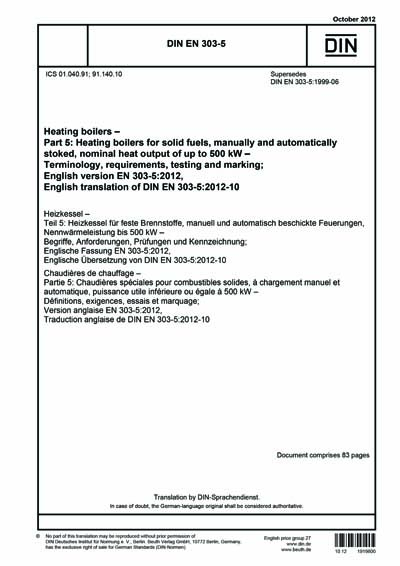Historical
DIN EN 303-5:2012
Heating boilers - Part 5: Heating boilers for solid fuels, manually and automatically stoked, nominal heat output of up to 500 kW - Terminology, requirements, testing and marking; German version EN 303-5:2012
This draft European Standard applies to heating boilers up to a nominal heat output of 500 kW which are designed for the burning of solid fuels only and are operated according to the instructions of the boiler manufacturer. Solid fuels in this standard are: Biogenic fuels Biomass in natural state in form of: a) A - log wood with water content w
Content Provider
Deutsches Institut für Normung [din]






